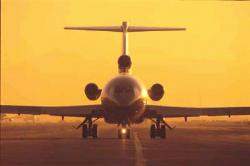Thu, May 24, 2007
Advertisement
More News
 NTSB Final Report: Cessna 177B
NTSB Final Report: Cessna 177B
Outboard Section Of The Right Wing And The Right Flap Separated In Flight And The Airplane Impacted A Farm Field Analysis: The pilot was approaching his destination airport under i>[...]
 ANN's Daily Aero-Term (05.08.25): Final Approach Fix
ANN's Daily Aero-Term (05.08.25): Final Approach Fix
Final Approach Fix The fix from which the final approach (IFR) to an airport is executed and which identifies the beginning of the final approach segment. It is designated on Gover>[...]
 Aero-News: Quote of the Day (05.08.25)
Aero-News: Quote of the Day (05.08.25)
"Our choice of when to respond, how to respond and on which targets to respond is a consideration that we make every time... Netanyahu also noted that anyone attacking Israel &ldqu>[...]
 ANN's Daily Aero-Term (05.09.25): Estimated (EST)
ANN's Daily Aero-Term (05.09.25): Estimated (EST)
Estimated (EST) When used in NOTAMs “EST” is a contraction that is used by the issuing authority only when the condition is expected to return to service prior to the e>[...]
 ANN's Daily Aero-Linx (05.09.25)
ANN's Daily Aero-Linx (05.09.25)
Aero Linx: Coalition of Airline Pilots Associations (CAPA) The Coalition of Airline Pilots Associations (CAPA) is the world’s largest pilot trade association representing ove>[...]
blog comments powered by Disqus




